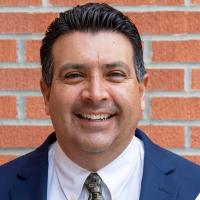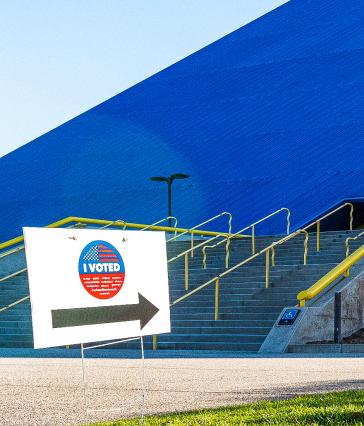CSULB expands mental health services for students, including groundbreaking training simulator
In the span of 20 years, Cal State Long Beach has transformed as an institution in several ways — in its physical footprint, academic successes and in the most fundamental aspects of the student experience on campus.
Among the most notable achievements in those two decades is the transformation and evolution in how the campus approaches mental health needs to meet an evolving population of scholars.
“In addition to dramatically increasing counseling capacity in CAPS (Counseling and Psychological Services) … we’ve systematically implemented additional programs, services and support strategies to meet students where they’re at, instead of waiting for them to seek out mental health support,” said Beth Lesen, vice president of Student Affairs.

In 2004, the campus had six full-time counselors, one for every 5,580 students. Now with 15.5 counselors, that ratio is one for every 2,657 students – and the gap continues to shrink as the campus looks to hire more counselors.
With these trained professionals comes years of experience serving CSULB’s diverse population. Of CSULB’s 15.5 counselors, 10 have served CSULB students for five or more years. The goal is to reach 20.5 counselors in spring 2025, Lesen said.
Mental health support on campus goes beyond traditional counseling with newer, innovative ways to reach students before they ever seek services.
The campus recently launched a simulation training experience that aids faculty and staff in practicing active listening, empathy and connecting students with wellness resources. The first-of-its-kind simulator, available to all employees, teaches participants how to interact with a student showing signs of distress.
The tool is one of many being utilized to address student wellness.
“We’re also doing more sophisticated assessment and engaging the broader campus community in mental health support work,” Lesen said. “Because when folks across campus engage, that’s when powerful things happen.”
When folks across campus engage, that’s when powerful things happen.
In 2022, the university launched a holistic overhaul to its approach to mental health ensuring that a student could walk through any door and be met with support. Another avenue for students included a peer-to-peer text line launched in the spring of 2022 where students can text a peer mentor when they need a compassionate ear.

It’s all part of a comprehensive plan to reach students where they’re most comfortable and make mental health care increasingly accessible.
“In our commitment to fostering a comprehensive wellness approach, we recognize that the mental health needs of our diverse student body require diverse resources that empower our students to access the support they need while fostering an inclusive and empowering campus culture of care,” said Damian Zavala, associate vice president of Health & Wellness.

















